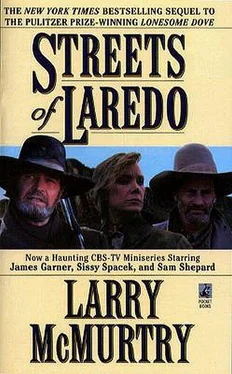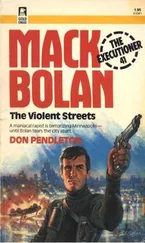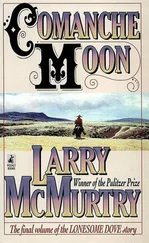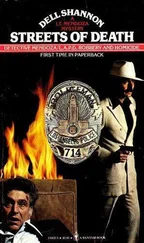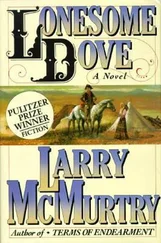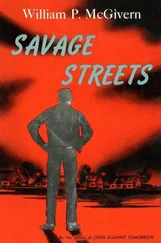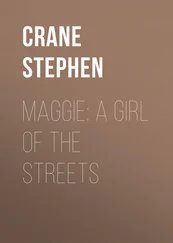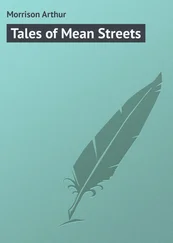"He enjoys a little travel," Call added.
"He's still got his memories--he just can't put any two of them together." "Hell, I can barely sort out two memories myself," Goodnight said. "It's what I get for living too long. My head fills up and sloshes over, like a damn bucket.
Whatever sloshes out is lost. I doubt I still know half of what I knew when I was fifty years old." "You take too many train trips," Call observed, in a mild tone.
"I thought we were talking about my bad memory," Goodnight said, squinting at him. "What's train travel got to do with it?" "All this traveling by train weakens the memory --it's bound to," Call said. "A man that travels horseback needs to remember where the water holes are, but a man that rides in a train can forget about water holes, because trains don't drink." Goodnight let that observation soak in for a few minutes.
"I was never lost, night or day," he said finally. "How about you?" "I got turned around once, in Mexico," Call said. "It was a cloudy night. My horse fell and got up pointed in the wrong direction. I was yawny that night and didn't notice till morning." "Was you mad at the horse when you did notice?" Goodnight asked.
"I was mad at myself," Call said.
"Well, this is a pointless conversation," Goodnight said, turning abruptly toward his horse. Without another word, he mounted and rode away. He had always been abrupt, Call reflected. When Charles Goodnight concluded that a conversation had overrun its point, he was apt to make a swift departure.
While Mr. Brookshire was walking back across the street, trying to whack the dust out of his fedora by hitting it against his leg, the train he and Call had been waiting for came in sight. It was the train that would, in time, deliver them to San Antonio.
Call was trying to think of a polite way to inform Mr. Brookshire that the fedora wouldn't do in a windy place like Texas. A hat that kept blowing off could lead to no end of trouble when dealing with a bandit as advanced as Joey Garza.
Even more, Call wished Brookshire could be persuaded just to go on back to New York, leaving him to deal with the young Mexican bandit alone.
Traveling across the West with errand boys such as Mr. Brookshire took considerably more energy than tracking the bandits themselves. Call had little to say to such men, but they invariably had much to say to him. Six hundred miles of Mr.
Brookshire's conversation was not something he looked forward to.
"This wind puts me in mind of Chicago," Brookshire said, when he returned to where Call was standing. He didn't bother putting his hat back on his head. Instead, he clutched it tightly in both hands.
"I've not visited Chicago," Call said, to be polite.
"The wind's not like this back home," Brookshire said. "Back home I can go for months without my hat blowing off my head a single time. I got off the train here yesterday, and I've been chasing my hat ever since." The train wheezed and screeched to a halt. When it had come to a full stop, Captain Call picked up his saddle and duffle roll.
Brookshire, to his surprise, suddenly found that he was feeling a little desperate--he felt that he didn't dare move. The wind had become even more severe, and he had the sickening sense that he, not his hat, was about to blow away. There wasn't a tree in sight that he could see: just endless plain. Unless he could roll up against a wagon wheel, as his hat had, there would be nothing to stop him for days, if he blew away. He knew it was an absurd feeling: grown men, especially heavy men such as himself, didn't just blow away. Yet the feeling persisted, and every time he happened to glance across the street and see nothing --nothing at all except grass and sky--the feeling got worse.
Call noticed that Brookshire had an odd look on his face. The man stood with his fedora clutched to his stomach, looking as if he were afraid to move, yet he was standing on perfectly level ground on a sunny winter day.
"Are you ill, Mr. Brookshire?" Call asked. After all, the man had been polite; he had agreed to Call's terms and had cheerfully paid for the coffee as well.
"I'd like to get on the train," Brookshire said. "I believe I'll soon perk up if I could just get on the train." "Why, here it is, right behind you," Call told him. "I assume you've got the tickets. We can step right on." "I'm afraid I've left my valise--you see, that's my problem," Brookshire admitted.
"Oh, at the hotel?" Call asked.
"Yes, it's right in the lobby," Brookshire said, looking at the ground. He did not feel it would be wise to look across the street again. It was when he looked across the street that the blowing-away sensation seized him the most fiercely.
"Well, the train just pulled in--it'll be here awhile, I expect," Call said. "You've got plenty of time to go get your valise." Then he looked again and realized that his traveling companion was having some sort of attack.
Brookshire was frozen, his eyes fixed on his feet. He didn't appear to be capable of moving--walking the hundred yards to the hotel was, for the moment, clearly beyond him.
"I can't do it," Brookshire muttered. "I can't do it. I'd just like to get on the train." He paused, his eyes still on his feet.
"What I'd like very much is to get on the train," he said, again.
Call immediately set down his saddle and duffle roll and took Mr. Brookshire's arm. The man was close to panic, and when a man was close to panic, discussion rarely helped.
"Here, I'll just escort you to your car," he said, holding Brookshire's arm. Brookshire took one small step, and then another. Soon Call had him situated in a railroad seat.
Brookshire's chest began to heave and the sweat poured off him, but at least, Call reckoned, the panic was broken.
"Just stay here and settle in," Call said.
"I'll stroll over to the hotel and pick up that valise." "Grateful," was all Brookshire could say.
What he really wanted to do was crawl under the seat, but of course, that would be impossible-- anyway, the railroad car had walls. He wasn't going to blow away.
A few minutes later, Captain Call came walking in with the valise and with his own saddle and duffle roll. He sat down across from Brookshire as if nothing untoward had happened.
But Brookshire knew that something had happened-- something very untoward. He was embarrassed and also deeply grateful to the Captain. Not only had he guided him onto the train and then walked two hundred yards out of his way to fetch the valise, but he had done both things politely. He hadn't asked Brookshire why he couldn't walk a hundred yards and tote his own baggage; he just accepted that it was an impossibility and put him on the train without a fuss.
Brookshire worked for people who never let him forget that he was an underling. Captain Call hadn't been especially friendly when they met that morning, but he hadn't treated Brookshire as an underling. When he noticed that a crisis was occurring, he had dealt with it efficiently and with no evident feelings of contempt for Brookshire's weakness.
It was exceptional behavior, in Brookshire's view. He had met with a good deal of exceptional behavior in his years with Colonel Terry, but most of it had been exceptionally bad. He was not used to decent treatment, but he had received it from Captain Call. When his heart finally stopped pounding, he took another look at the man who sat across the aisle from him.
Call was smoking. If he even remembered that something out of the ordinary had happened on the railroad platform, he gave no sign.
The train started and they were soon cutting a narrow furrow through the endless miles of prairie.
The stiff wind was still blowing, ruffling the surface of the sea of grass.
"Does your hat ever blow off, Captain?" Brookshire asked.
Читать дальше
